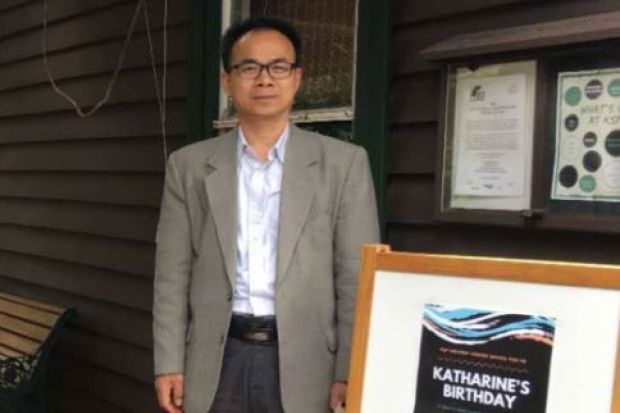Australia’s security agency is reviewing its move to prevent a highly regarded Chinese arts scholar from entering the country, a parliamentary committee has heard, as the head of Western Sydney University (WSU) reiterated his appeal to the agency to overturn the decision.
Australia’s government has cancelled the visa of Li Jianjun, a Beijing-based translator and academic who is undertaking doctoral studies at WSU, after he attracted an adverse assessment from the Australian Security Intelligence Organisation (Asio). The agency has not outlined the grounds for the assessment.
Mr Li, who has visited Australia regularly for two decades, is currently secretary general of the Chinese Association for Australian Studies. He teaches courses on Australian literature at Beijing Foreign Studies University, where he heads the Australian Studies Centre.
WSU vice-chancellor Barney Glover, who sent Asio a letter of support for Mr Li, was grilled about his intervention during a hearing of the Senate’s foreign affairs committee. Concetta Fierravanti-Wells, a committee member from the governing Liberal Party, highlighted the “divergence of views” between Asio’s appraisal of Mr Li and Professor Glover’s “strong support of him as a person of quality and integrity”.
“If you’re doing your due diligence, how can you be in a circumstance where…Asio is prepared to cancel this guy’s visa, and [you] are prepared to stake your reputation in terms of standing up for him?”
Professor Glover said that question was best put to Asio, which had “not provided any detail to us about their concerns”. But he said he had intervened after encountering “very strong support for this individual”.
“I was more than comfortable writing to Asio to express my view, based on…the testimonials of many important Australian scholars about his personal integrity…and staff at WSU who worked extensively with him.” Professor Glover said he understood that Asio was now revisiting the July visa cancellation. “I hope that review is successful,” he said.
Mr Li has declined interviews with Times Higher Education, citing advice that media commentary could harm his prospects. But in a September letter to Asio, obtained by the ABC, he challenged the adverse assessment.
“I’m a scholar of Australian literature and essentially am non-political. I have never been and will never be a direct or indirect risk to Australia’s or any country’s security,” the letter says.
The ABC cited High Court documents suggesting Mr Li’s assessment stemmed from his membership of a small WeChat group that includes a political staffer under investigation by Asio and the Australian Federal Police. “It is purely a social chat group of friends,” Mr Li’s letter insists.
“There was nothing sinister in its content – primarily postings of news articles, casual content, food pictures, jokes – no intention of influence or interference had been attempted by anyone.”
Friends and colleagues contacted by the broadcaster described Mr Li as mild-mannered, unassuming and non-political. Long-time collaborator Colin Mackerras, an emeritus professor at Griffith University in Queensland, said Mr Li felt such affinity for Australia that he had named his daughter after the continent.
“He’s a very keen scholar who’s put a lot of work into developing Australian studies. The idea that his visa should be cancelled because he’s a national security threat – that is extremely unlikely.”
Register to continue
Why register?
- Registration is free and only takes a moment
- Once registered, you can read 3 articles a month
- Sign up for our newsletter
Subscribe
Or subscribe for unlimited access to:
- Unlimited access to news, views, insights & reviews
- Digital editions
- Digital access to THE’s university and college rankings analysis
Already registered or a current subscriber? Login











